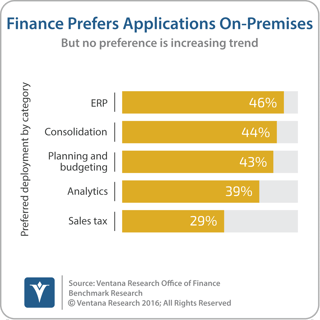Oracle and NetSuite have completed their merger. The combination is likely to be positive for customers because NetSuite will have access to “more,” a word repeated many times over the course of Oracle’s post-acquisition webcast. Existing NetSuite customers will benefit from increased investment as well as economies of scale that Oracle can bring to R&D and sales and marketing. Oracle has stated that there’s little overlap between its target customer base and NetSuite’s. However, there is substantial overlap with NetSuite’s application partner network because of Oracle’s own broad application portfolio. As such, many of these partners are likely to shift their attention to NetSuite’s cloud-only competitors (for example, FinancialForce and Intacct), which will benefit those rivals’ sales and marketing efforts.
Existing and prospective NetSuite customers should benefit from Oracle’s stated intention to increase funding of R&D for the product. That would enable a more rapid build-out of functionality, some necessary rebuilding of older code and accelerated localization of the application to enable deeper penetration of non-English-speaking markets. Broader localization will make NetSuite more attractive as a “second-tier” ERP. The two-tier ERP approach is used by larger corporations that decide to deploy a less complex application in smaller subsidiaries that don’t require all of the functionality built into the main ERP system. NetSuite’s customers – especially larger ones – also will be able to more readily integrate with the full range of Oracle’s applications at future dates.
In addition, NetSuite’s partners will be able use Oracle’s platform- and infrastructure-as-a-service to facilitate the integration of third-party and homegrown applications. One barrier to adopting a cloud-based ERP system may be a lack of specific capabilities needed by a specific type of business. While multitenant cloud software can be much more economical to deploy and maintain, it is not customizable in the way on-premises applications can be modified to suit the requirements of a customer. Many companies that would prefer an ERP cloud option find they cannot take it because of gaps in functionality for their type of business. This is one reason why our benchmark research on the Office of Finance shows that nearly half (46%) of companies prefer to deploy ERP on-premises. However, there is potential for partners with microvertical specialization to use the Oracle platform to create functionality that addresses the specific needs of their target customers and thus eliminate this barrier to cloud adoption. Such an approach may broaden the range of companies that are able to move to the cloud.
Oracle’s platform- and infrastructure-as-a-service to facilitate the integration of third-party and homegrown applications. One barrier to adopting a cloud-based ERP system may be a lack of specific capabilities needed by a specific type of business. While multitenant cloud software can be much more economical to deploy and maintain, it is not customizable in the way on-premises applications can be modified to suit the requirements of a customer. Many companies that would prefer an ERP cloud option find they cannot take it because of gaps in functionality for their type of business. This is one reason why our benchmark research on the Office of Finance shows that nearly half (46%) of companies prefer to deploy ERP on-premises. However, there is potential for partners with microvertical specialization to use the Oracle platform to create functionality that addresses the specific needs of their target customers and thus eliminate this barrier to cloud adoption. Such an approach may broaden the range of companies that are able to move to the cloud.
Ultimately, customers will be able to take advantage of Oracle’s Adaptive Intelligent Applications, a Ventana Research 2016 Technology Innovation award winner, on which I have commented. Adaptive Intelligent Applications is Oracle’s term for its new applications that marry third-party data with real-time analytics, machine learning and behavioral learning. “Adaptive” means that the applications are able to mold themselves to how organizations actually behave rather than forcing users to adjust to how the software works. The objective is to embed in business applications situational awareness that simplifies how individuals perform tasks and provides executives, employees and customers with recommendations tailored their specific needs in the immediate context. This approach utilizes a key advantage of cloud applications: Vendors are able to bring their expertise and economies of scale to bear in expanding the scope of their services to provide capabilities that, for cost or other practical reasons, most customers couldn’t duplicate on their own premises.
analytics, machine learning and behavioral learning. “Adaptive” means that the applications are able to mold themselves to how organizations actually behave rather than forcing users to adjust to how the software works. The objective is to embed in business applications situational awareness that simplifies how individuals perform tasks and provides executives, employees and customers with recommendations tailored their specific needs in the immediate context. This approach utilizes a key advantage of cloud applications: Vendors are able to bring their expertise and economies of scale to bear in expanding the scope of their services to provide capabilities that, for cost or other practical reasons, most customers couldn’t duplicate on their own premises.
Oracle also plans to increase its investment in partner training and certifications, a move that is long overdue for NetSuite. The quality of ERP implementations can vary a great deal. A poorly implemented system harms the reputation of the software vendor, so it’s in their interest to ensure that the work is done well.
From a business standpoint, the merger improves Oracle’s competitive positioning in the market for midsize ERP systems, especially in Europe. NetSuite did not have a sufficient concentration of offices and other in-country resources. This is partly because continental Europe has had an entrenched set of incumbents with well-established implementation partners. Incrementally adding to local Oracle offices is a far more affordable growth path. NetSuite is a global company, but most of its penetration is in English-speaking markets. Localization investments, mainly language support, will help in this regard.
Oracle insists that there is a limited degree of target customer overlap between the Oracle and NetSuite brands. Although that’s true to some degree, there’s bound to be contention between the brands, sales forces and partners where customers might go either way. The software business is rife with channel and other conflicts in the sales process. Managing and mitigating conflicts is part of the ongoing challenge of running a software company.
The merger of Oracle and NetSuite is positive for NetSuite customers because of projected acceleration in the development calendar and because many will benefit from having Oracle’s greater resources behind the company. I would expect that NetSuite customers will see broader improvement to its operations as pointed out by my colleague. Oracle is likely to benefit from NetSuite’s market position as well as the additional revenue it can obtain in non-English speaking countries.
Regards,
Robert Kugel
SVP & Research Director
Follow me on Twitter
and connect with me on LinkedIn.



 analytics, machine learning and behavioral learning. “Adaptive” means that the applications are able to mold themselves to how organizations actually behave rather than forcing users to adjust to how the software works. The objective is to embed in business applications situational awareness that simplifies how individuals perform tasks and provides executives, employees and customers with recommendations tailored their specific needs in the immediate context. This approach utilizes a key advantage of cloud applications: Vendors are able to bring their expertise and economies of scale to bear in expanding the scope of their services to provide capabilities that, for cost or other practical reasons, most customers couldn’t duplicate on their own premises.
analytics, machine learning and behavioral learning. “Adaptive” means that the applications are able to mold themselves to how organizations actually behave rather than forcing users to adjust to how the software works. The objective is to embed in business applications situational awareness that simplifies how individuals perform tasks and provides executives, employees and customers with recommendations tailored their specific needs in the immediate context. This approach utilizes a key advantage of cloud applications: Vendors are able to bring their expertise and economies of scale to bear in expanding the scope of their services to provide capabilities that, for cost or other practical reasons, most customers couldn’t duplicate on their own premises.








